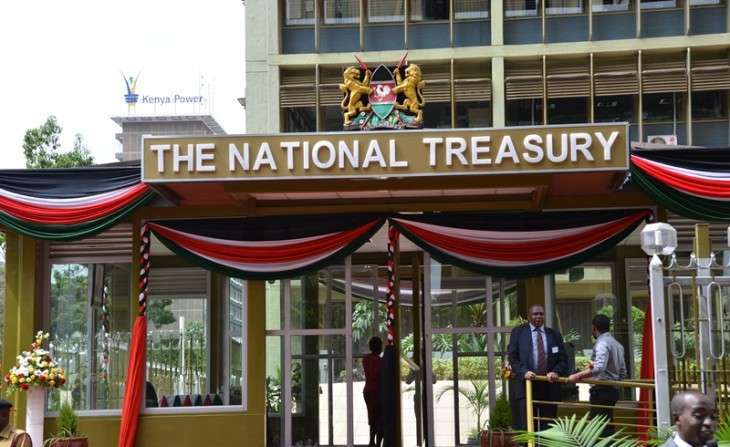As Kenyans plunge more into debts the Jubilee administration under the helm of Uhuru Kenyatta, a graduate- so they say- of economics, political science and government at Amherst College in the United States, and his deputy (Dr.) William Ruto borrow an average of Sh2.5 billion daily from foreign lenders.
The public debt report tabled in Parliament yesterday revealed that Kenya borrowed six loans between May and August worth Sh305.6 billion, translating to an average of Sh2.55 billion daily for the 123 days. This represented a 47.4 per cent increase compared to the Sh1.73 billion daily average borrowing in the four months to April based on the Sh208 billion new debt that Kenya borrowed at the time.
Treasury said the bulk of the loans from commercial and multilateral creditors will finance infrastructure projects in education, Budget support and refinancing of the 2014 Eurobond.
There has been a jump in government borrowing since President Uhuru Kenyatta came to power in 2013 – a rise that some economists and politicians say is saddling future generations with too much debt.
“Four of the six new loans contracted by the government from May 1, 2019, to August 31, 2019, are from a multilateral lender and two are from commercial lenders. The total value of the six new loans signed is equivalent to Sh305,601,528,984 and three of the loans have been disbursed by the time of submitting this report,” Ukur Yatani, the acting Treasury Cabinet Secretary said in the report.
The Public Finance Management Act, 2012 requires the Treasury Secretary to submit a report every four months to Parliament on the status of new loans, their terms and use.
Kenya borrowed two loans of Sh219 billion to refinance part of its debt repayments including the $750 million (Sh77 billion) million 2014 Eurobond that was due on June 24. With a value of $900 million (Sh93.4 billion), the first loan was borrowed from Citigroup Global Market in May and used for the Eurobond repayment. The loan will be repaid in three equal annual instalments each worth $300 million starting May 22, 2025, through to May 22, 2027. Kenya will also pay interest on the loan.
On May 22, the second international sovereign bond was signed between the Treasury and Citigroup. This one falls due in 2032. The loan amount of Sh124.5 million ($1.2 million) was also used to clear the Eurobond. It will be repaid in three equal annual repayments each of $400 million starting May 22, 2030 through to May 22, 2030, at an interest rate of eight per cent per annum on the disbursed loan amount.
Treasury further signed a Sh76.9 billion loan with the International Development Association (ADA) for affordable housing, food security and digitisation of government operations. ADA also provided another Sh5.9 billion for technical schools. Treasury inked yet another loan deal with Africa Development Fund under Green Zones Development Support Project II-ADF of Sh4.2 billion.
On Monday, Treasury announced plans to change the law and increase the cap for State borrowing to Sh9 trillion, giving the government leeway to jerk up the already growing public debt. At present, the law restricts public debt at half of Gross Domestic Product (GDP). The change will allow the Treasury to borrow more in line with its target of increasing public debt to Sh9.1 trillion in the year starting July 2023 from Sh5.7 billion in June.
Rising debt has seen Kenya commit more than half of its taxes to repay loans. In the year ended June, Kenya spent Sh826.20 billion on debt repayments. And most of these debts end up benefiting few cartels in the government and their fellow crooks business cartels.














